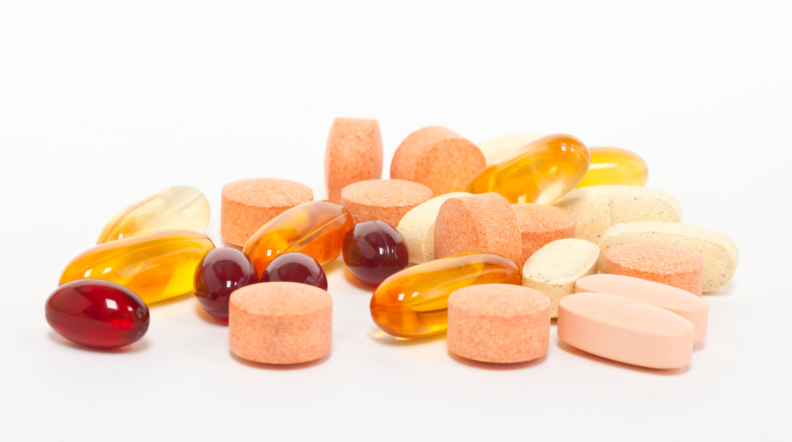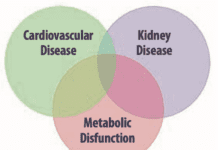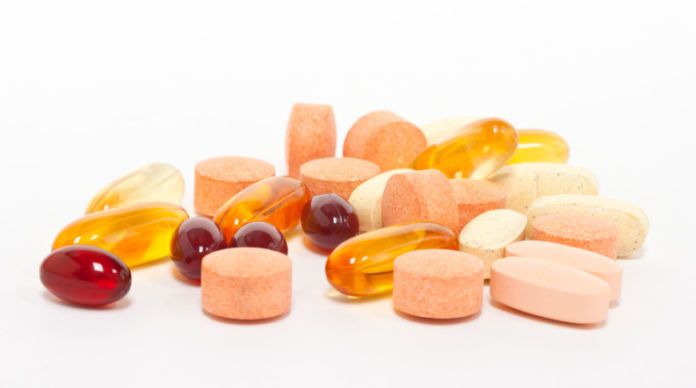Should you flush all your vitamin pills? Thats what a pair of new studies left some supplement users wondering, as multivitamins and other supplements were linked to increased risk of dying and extra vitamin E was implicated in prostate cancer.


Dont over-react to either headline-grabbing study, advises Irwin H. Rosenberg, MD, editor of the Tufts Health & Nutrition Letter. Just as it wasnt wise to jump too enthusiastically on the supplement bandwagon when studies showed an association with various health benefits, theres no need to panic now that similar studies warn of negative consequences.
Finding an association is not the same as proving causality, whether with benefits or harm, Dr. Rosenberg says. Clearly, however, were seeing a swing of the pendulum from runaway acceptance of supplements to a more balanced approach.
One new study, published in Archives of Internal Medicine, analyzed data on 38,772 women, average age 61.6, in the Iowa Womens Health Study. As the women got older, from 1986-2004, their use of dietary supplements increased, with the percentage using at least one daily rising from 62.7% to 85.1%. But of all the supplements studied, only extra calcium was positively associated with reduced risk of dying during an average 19-year follow-up. Multivitamins and supplements of vitamin B6, folic acid, magnesium, zinc, copper and especially iron were all associated with greater risk of dying during the follow-up period.
Based on existing evidence, we see little justification for the general and widespread use of dietary supplements, researchers concluded. We recommend that they be used with strong medically based cause, such as symptomatic nutrient deficiency disease.
The second study took a longer look at the SELECT study of selenium and vitamin E pills, which had aimed to show that the supplements helped prevent prostate cancer among the 35,533 older men who participated. But the initial findings showed no benefit from selenium and a statistically nonsignificant increased risk associated with vitamin E. Since then, an additional 521 prostate cancers have been diagnosed among participants-enough to push the link with vitamin E to statistical significance. Taking an extra 400 IU daily of vitamin E was associated with a 17% greater risk of prostate cancer, compared to placebo. The elevated risk didnt appear until the third year of the trial, and was consistent across both low- and high-grade cancers.
Researchers noted that 23% of people age 60 or older take supplements containing at least 400 IU of vitamin E (18 times the recommended level for adult men). Writing in JAMA, they concluded that the findings demonstrate the potential for seemingly innocuous yet biologically active substances such as vitamins to cause harm.
So whats a concerned supplement user to do? Jeffrey B. Blumberg, PhD, director of Tufts HNRCA Antioxidants Research Laboratory, notes that new findings on multivitamins are contrary to previous research, which had shown either improved mortality risk or no effect. He still recommends a daily multivitamin formulated at about 100% of Daily Values, because lots of people are falling short of the recommended daily amount of several nutrients including calcium, potassium, vitamin D and vitamin E. The average diet is poor when it comes to meeting recommended intakes of vitamins and minerals.
| Eating Your Vitamins |
To get your nutrients from food, start with these dietary sources of the 13 vitamins:
Vitamin A (carotenoids): Carrots, cantaloupe, sweet potatoes, apricots, spinach, milk, eggs
Vitamin C: Citrus fruits and juices, red and green peppers, kiwi, broccoli, strawberries, tomatoes, sweet and white potatoes, cantaloupe
Vitamin D: Salmon, tuna, mackerel, oysters, egg yolks; vitamin D-fortified milk orange juice, and breakfast cereal
Vitamin E: Vegetable oils, nuts, seeds, wheat germ
Vitamin K: Spinach, kale, collards, Swiss chard, broccoli, romaine lettuce
Vitamin B1 (thiamin): Enriched bread, cereal, pasta, whole grains; lean meats, fish, beans, soybeans
Vitamin B2 (riboflavin): Lean meats, eggs, legumes, nuts, green leafy vegetables, dairy products, enriched bread
Vitamin B3 (niacin): Dairy products, poultry, fish, lean meat, nuts, eggs, fortified bread and cereal
Pantothenic acid: Eggs, fish, milk, milk products, whole grain cereal, beans
Biotin: Eggs, fish, milk, milk products, whole grain cereal, beans
Vitamin B6: Beans, nuts, eggs, meat, poultry, fish, fortified bread and cereal
Vitamin Bl2: Meat, eggs, poultry, fish, shellfish, milk, milk products, fortified breakfast cereal
Folate (folic acid): Green leafy vegetables, enriched bread, fortified breakfast cereals
Source: Office of Dietary Supplements But Alice H. Lichtenstein, DSc, director of Tufts HNRCA Cardiovascular Nutrition Laboratory, says from what we know, the people who are most likely to regularly use supplements are the least likely to need them. A multivitamin supplement will only be beneficial if the person taking it habitually consumes a diet deficient in one or more of the nutrients contained in the supplement, Studies Warn of Possible Dangers from Taking Supplementsshe explains. Since the majority of Americans do not habitually consume nutrient-deficient diets, especially those individuals most likely to take a multivitamin supplement, it is not surprising that little benefit would be garnered.
Both experts agree that the place to start getting the nutrients you need is from food (see box). If you think you might nonetheless need to take a supplement, check out the latest state of the science, vitamin by vitamin, in our August 2011 Special Supplement. If you decide to start taking a nutrient supplement, Lichtenstein adds, its important to inform your healthcare provider.
TO LEARN MORE: Archives of Internal Medicine, Oct. 10, 2011; abstract at archinte.ama-assn.org/cgi/content/short/171/18/1625. JAMA, Oct. 12, 2011; abstract at jama.ama-assn.org/content/306/14/1549.short.
























